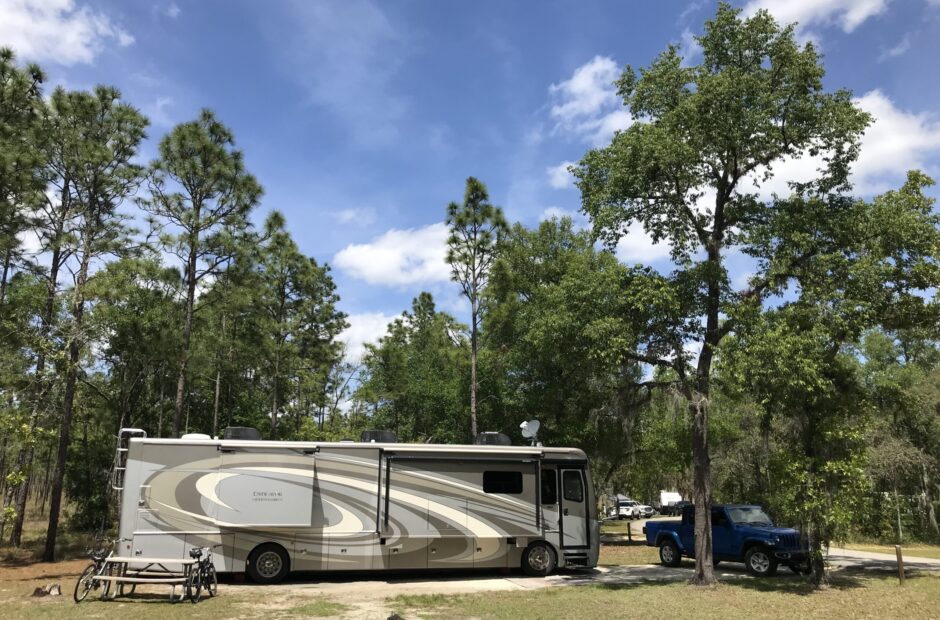Aune-Osborn Campground, Sault Ste. Marie, Michigan
The Lord said, “If as one people . . . they have begun to do this, then nothing they plan to do will be impossible for them.” Genesis 11:6
Just when you think you’ve seen it all, this morning rolls around. There was a woman – probably in her early fifties – pulling a red wagon. Now that in itself wasn’t so unusual, in fact, my first thought was that she was on her way to do laundry because the insert in the wagon looked like two of those foldable nylon baskets. But something didn’t seem quite right about it.
Remember in the old days when the circus was coming to town, and they’d parade a couple of cages of animals down the street to get people excited? That’s what this reminded me of. A red wagon, with a pink scalloped top with shear sides, so you could see in . . . .
A cat.
A gigantic, very furry cat. A gigantic, very furry, orange and white – – pussy cat.
Who takes a cat for a walk in a wagon? Unbelievable! Even more so than the tiny dogs we frequently see in strollers.
For not having a plan today, we sure managed to fill the hours!
About 10:30am, Blaine called the Soo Lock Hotline and heard there was a 1,000’ freighter about to enter the locks, so we dropped everything and took off.
We got to the viewing area about 11:30, just before the ship, and ended up standing there for two hours! There’s metered parking here, and we thought 2 ½ hours would be more than enough time today, but Blaine had to high-tail it outta there to get back to the meter and feed it some more quarters.
I’m sure you’re wondering what in the world we did for two hours. It seems really strange, having all these people pressed up against a railing staring at what amounts to a giant bathtub filling with water. You would never do that unless you were retired or on vacation. 😊
But it’s fascinating in its own way! And if you’re lucky – as we were – there’s someone willing to chat a bit to pass the time.
I keep backing up, but this is the last time, then I’ll move forward.
When we arrived, one of the fleet (there are 13 thousand-footers that sail only the Great Lakes), was leaving and another (the one we were there to see) was arriving.
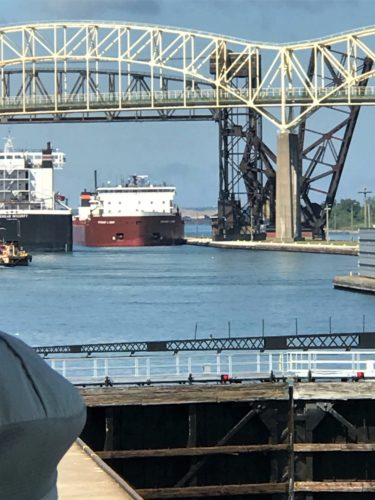
The Stewart J. Cort was extremely slow arriving into the locks. I understand slow. I expected slow. These ships are 25 times the size of our motorhome, and I know it takes some space to stop it. So slow ahead, when you have to full-stop just before a lock gate. But this was excruciatingly slow. Maybe it was a captain in training . . .
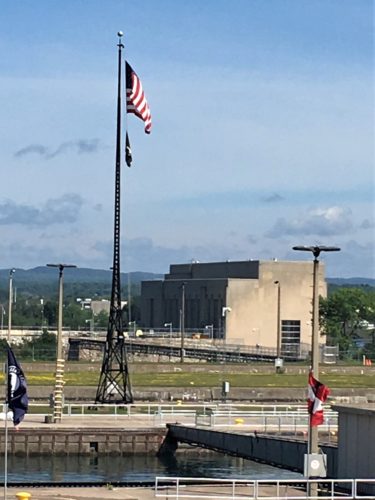
That’s the hydropower plant they use for the locks.
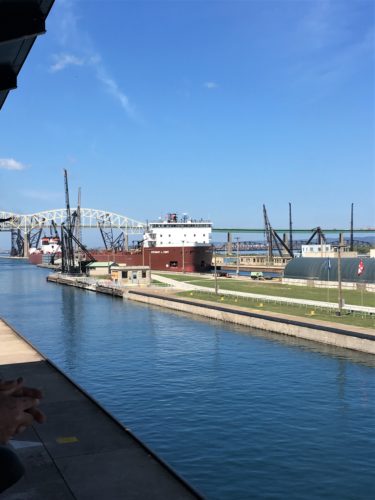
While we were waiting – be it ever so slowly, Blaine took a few moments to Google the ship information. You won’t believe what he found out! This ginormous ship (the first thousand-footer on the Lakes), began her career in a Mississippi shipyard as Stubby.
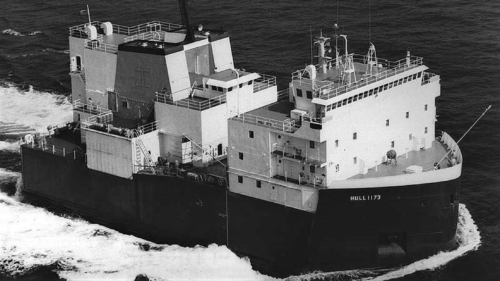
There’s Stubby!
When she left Mississippi in 1970, she was 182’ long and 75’ wide. She arrived at Erie Marine in Erie, Pennsylvania in 1971, where she was cut apart following the “Cut Here” instructions painted on the hull! Haha! After being sawed in two, she was then attached to the 818-foot long body, and set sail on her maiden voyage on May 1, 1972. (I’m assuming the extra girth is in the middle, as is the case with most of us.)
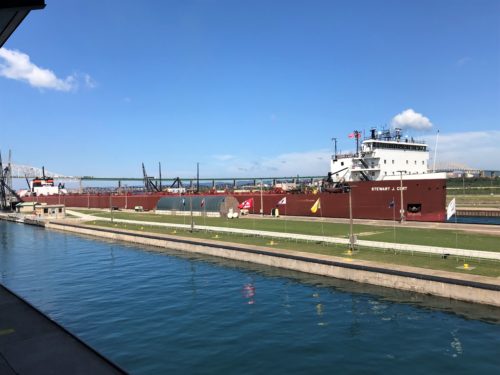
Here’s Stubby today!
Unfortunately, the lock that holds these giants of the Lakes is one over from where we stand. It’s still a terrific view, but of course would be better if it were closer!
So. The Lake Superior side of Mary’s River (where the ship is coming from) is 21’ higher than the Lake Huron side (where the ship is going to). The Cort came in high and the water drained out – at a speed of one-and-a-half million gallons per minute. It takes about 10-15 minutes.
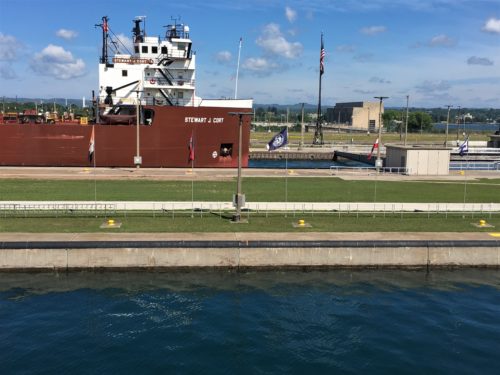
She has to pull all the way up to that gate across the water.
Look how high she’s sitting. (note the lettering on the bow)
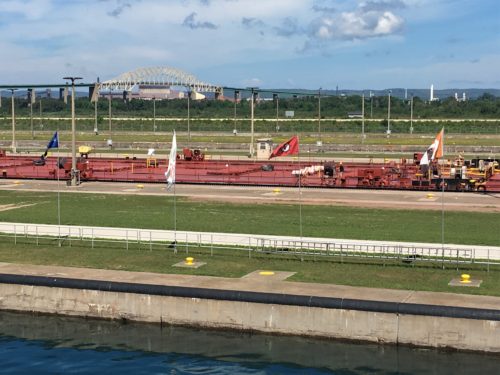

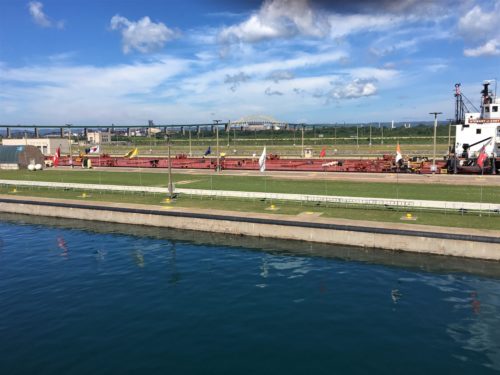
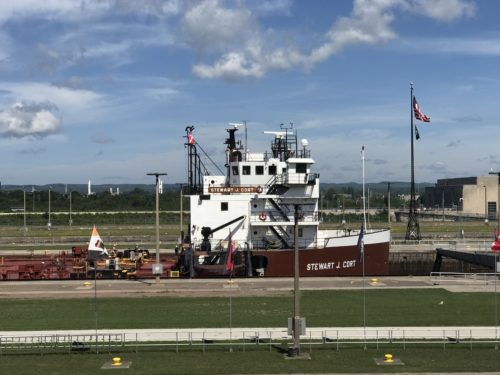
Still lowering
(note the lettering on the bow)
It got pretty hectic then, because as the Cort was preparing to leave lock #2, a Coastguard cutter was coming in to #1, and another thousand-footer, the Mesabi Miner, was ready to enter the vacated lock #2.
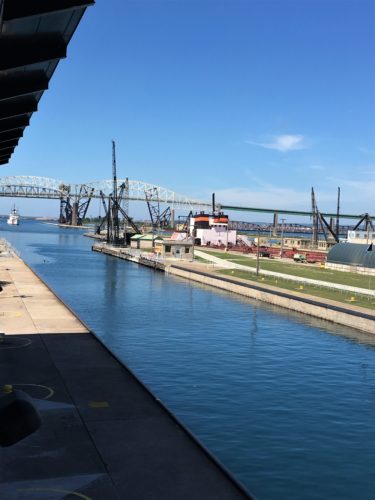
That’s the coastguard coming in.
Note how the water level’s the same.
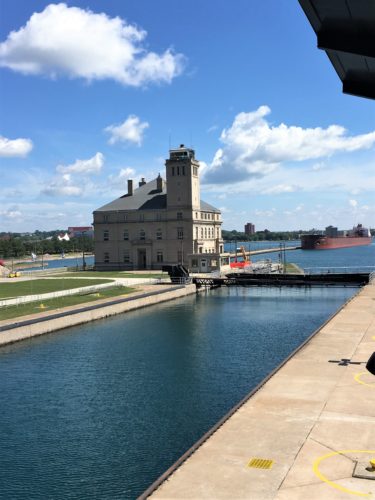
I don’t know if you can tell in the picture, but the water level where the Mesabi Miner is waiting is 21′ lower than the water in the lock in front of us.
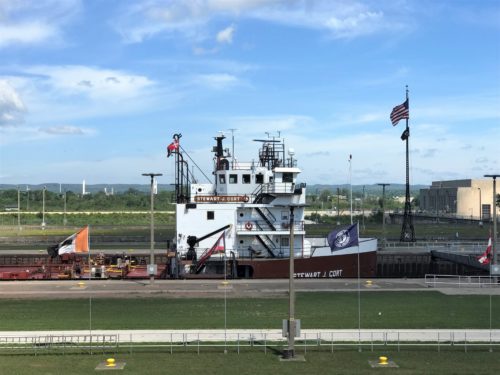
Ready to leave
(note the lettering on the bow)
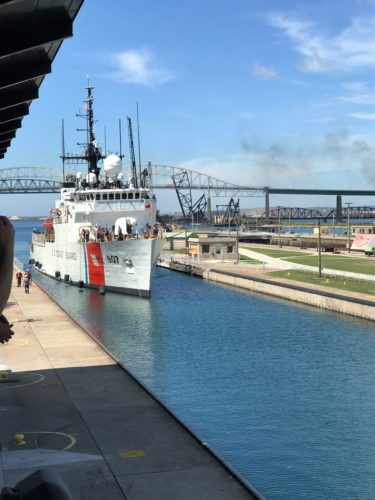
The cutter is in the lock closest to us. One of the men on board was talking to a man just to our left. They’d been gone since July 1st and were returning from some . . . I can’t remember what he called it, but it was like a boat parade. They seemed ready to return home.
It was interesting watching them pull up alongside the lock and tie off. They would shout commands and responses back and forth and one particularly overworked guy had to keep wrapping and unwrapping the rope to secure the boat the way they wanted it.
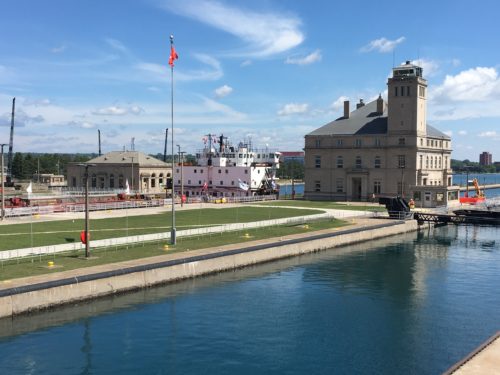
There goes the Cort.
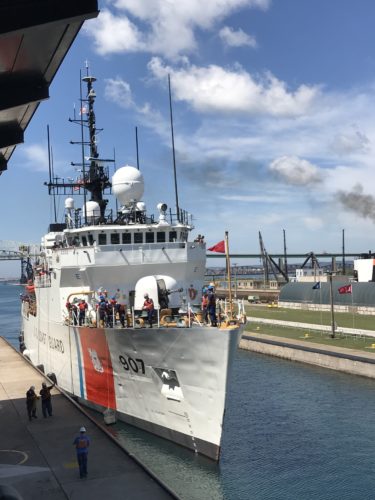
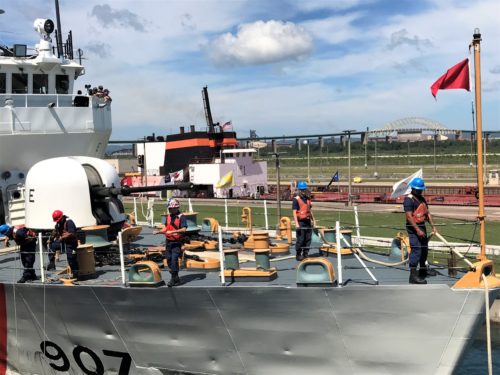
The cutter has moved in and is being secured to the side of the lock.
Look at the size of that gun!
Meanwhile, in the background, the Cort is still on it’s way out.
That’s the stern, so she’s about halfway through the lock at this point.
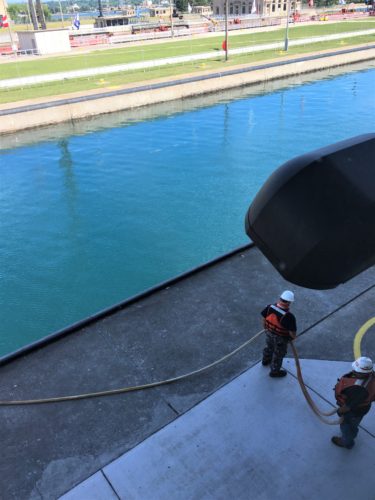
Soo Lock dock workers
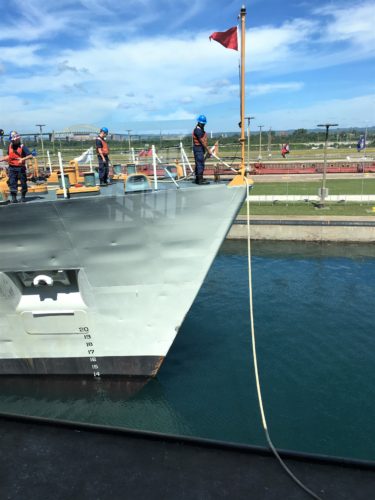
The Cort is still there.
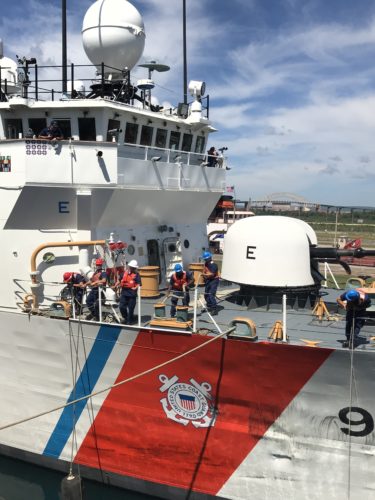
You can see the Cort in the background, but note the guy with the rope just to the left of the “E”. He’s the one who worked the hardest!

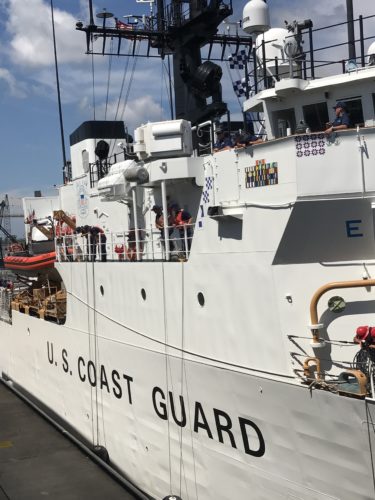
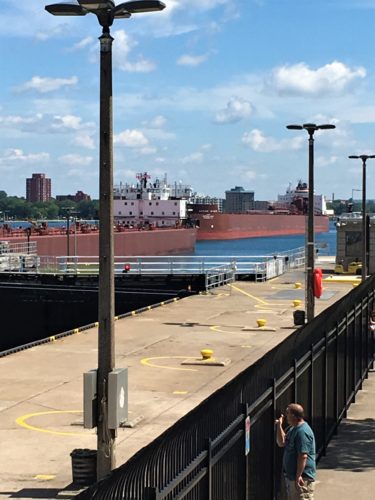
The Cort and the Miner
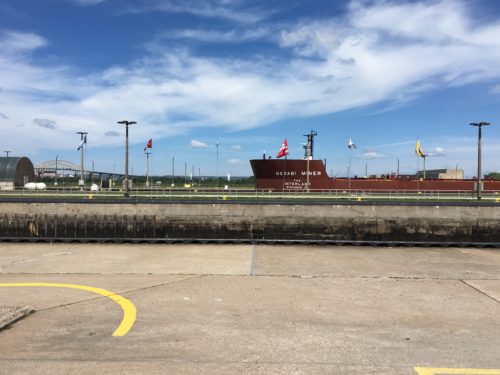
The Mesabi Miner moved a whole lot faster than the Cort!
They’re entering the lock before the Coastguard was done tying up!
We had to leave just before the cutter left the dock, but as we were walking away, we heard them moving and turned to look. They were definitely not going slow!
After making our run up the street to feed the meter, we returned to the Visitor Center to catch the things we’d missed on our previous cursory visit – some interesting facts and great pictures.

The six pictures in this group were actually super large and on windows, kinda like holding up a negative.
I wasn’t sure how they’d turn out, but thankfully they’re not bad!

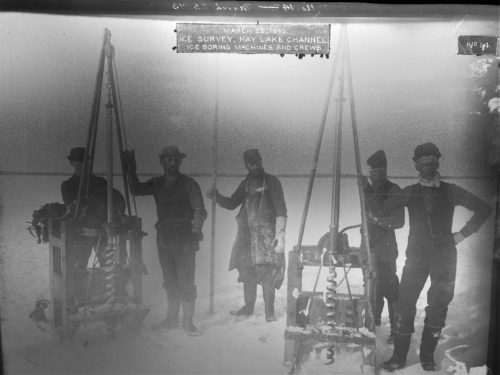
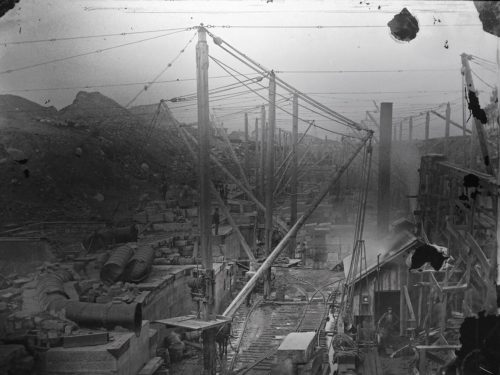
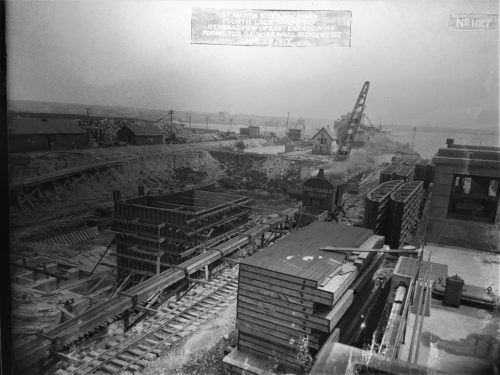
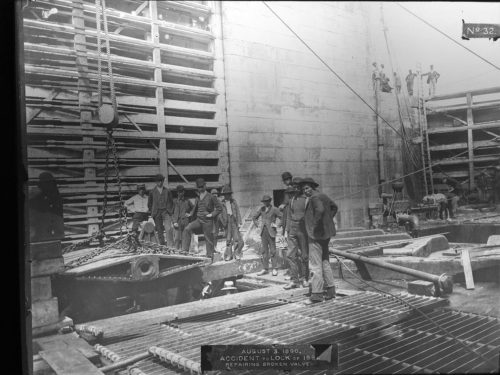
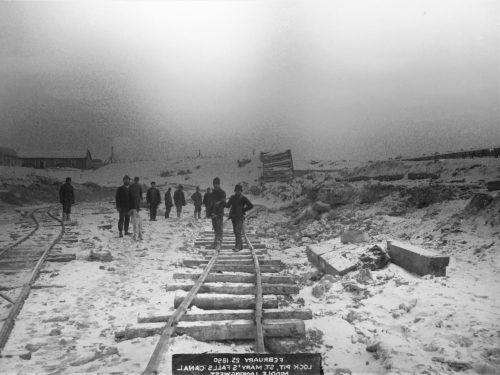
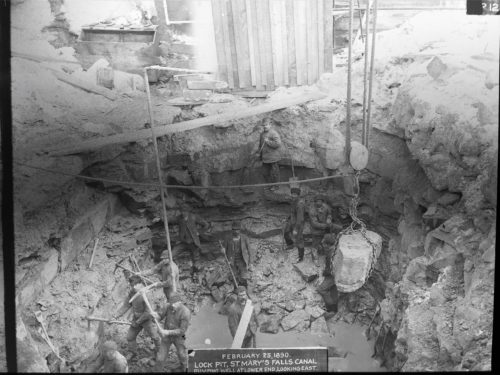
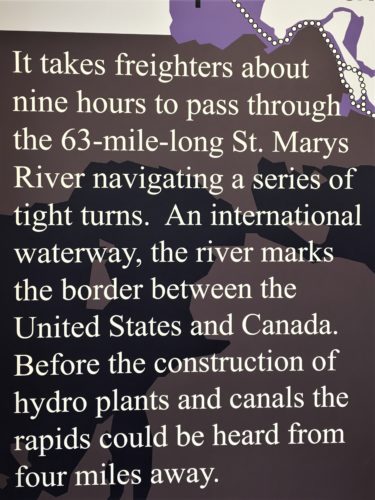
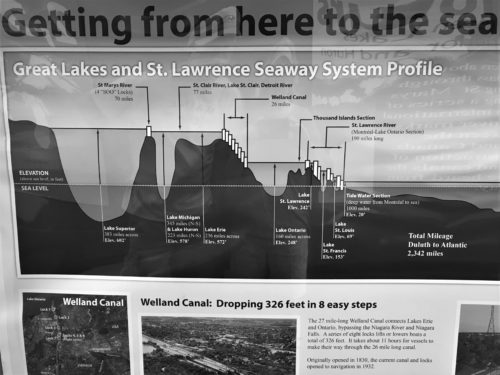
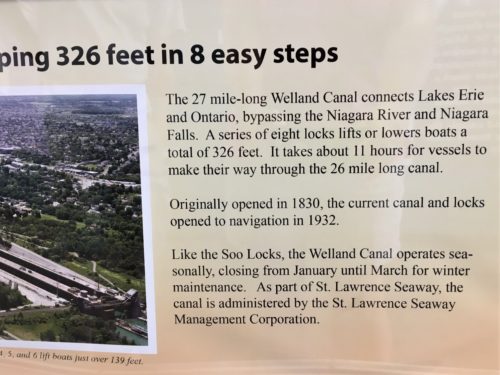
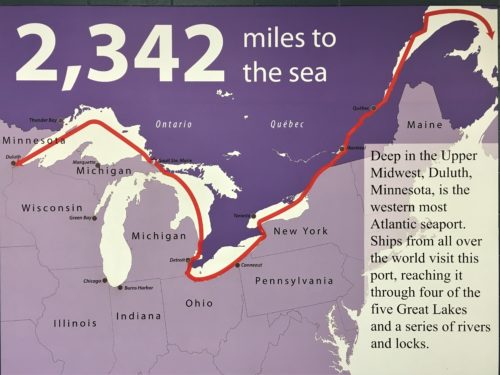

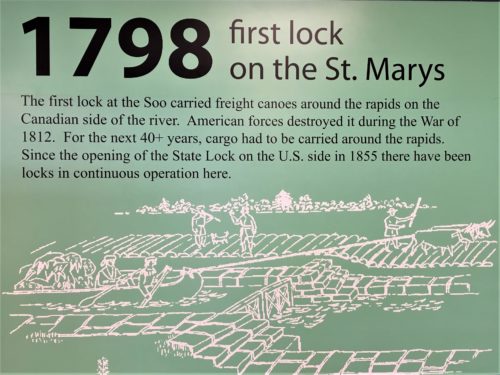
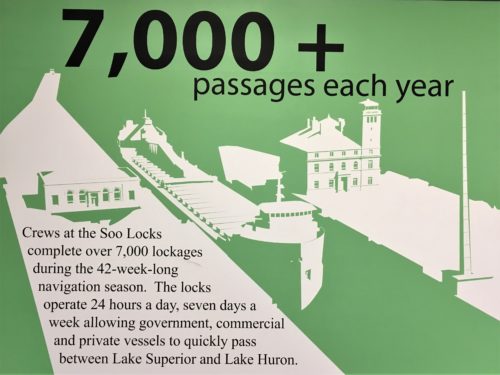
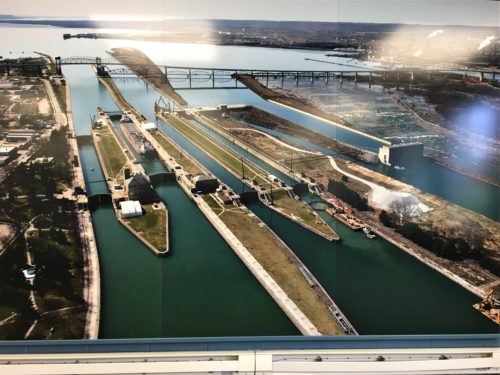
There’s a teeny tiny building on the left, just about the middle of the furthest left lock.
That’s the viewing area!
And just behind that, is a teeny tiny building that’s the Visitor Center!
But then we noticed that yet another ship had come in! This one, the Algoma Spirit (728’ long and 75.5’ wide), was already in lock #1 before we arrived at the viewing area. So were the masses. We were forced to sneak in pictures where we could.
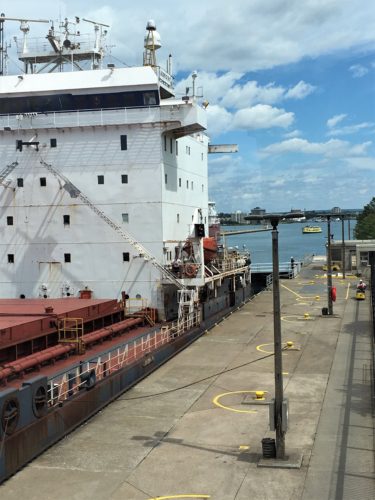
In case you’re wondering, the answer is yes.
Most of the 1,000-footers look almost identical.
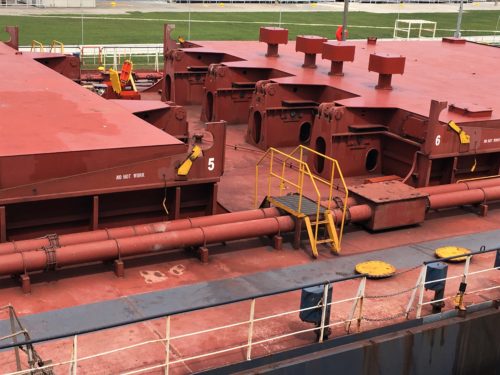
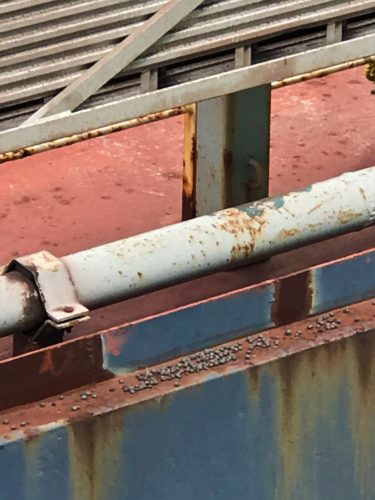
Those are taconite pellets.
Thousands of pounds of those are inside the ship.
This is what the steel mills use to make stuff.
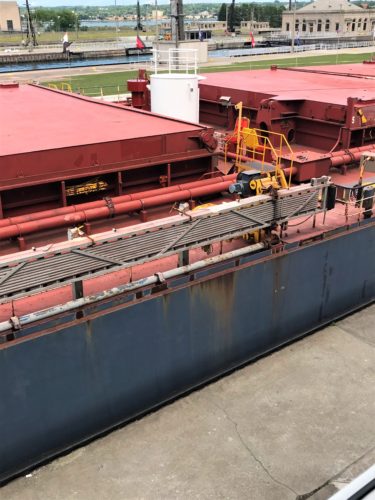
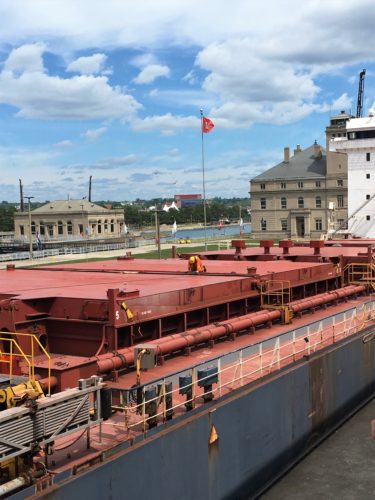
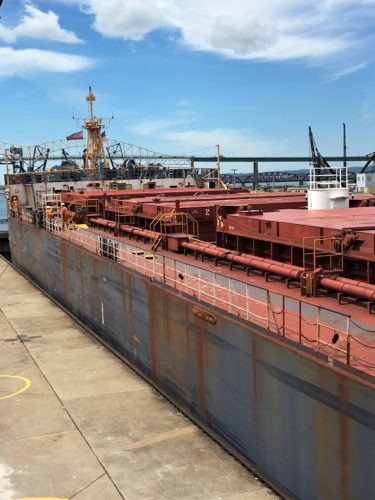
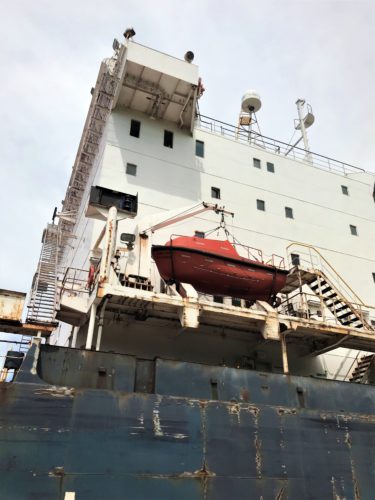
This gives you a bit of a better perspective of height!
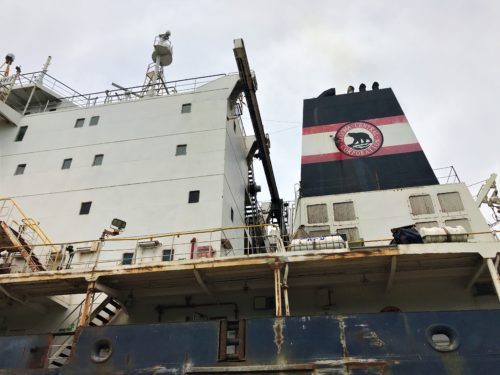
As another side note – Dock #1 was built in 1943, is named MacArthur (after the General) and is 800’ long and 80’ wide. Dock #2 was built in 1968, is named Poe (for a Colonel engineer officer during the Civil War) and is 1200’ long and 110’ wide. There are two other docks, but they’ve been closed (probably because they were built in 1914 and 1919) and will eventually be made into one lock. This project is destined to take several years.
So as you can see when you look at the numbers, there was not much wiggle room for the Algoma!
It was at this time that we discovered the entrance to the park area, 21’ down from the Visitor Center, and level with the Huron side of the river. What a great place to view the ships from! Too bad we didn’t know about this earlier. Apparently, not too many others knew about it either, because there was hardly anyone down there. It would’ve been a perfect spot to watch the Algoma come into the lock – at least to get a better perspective of size.
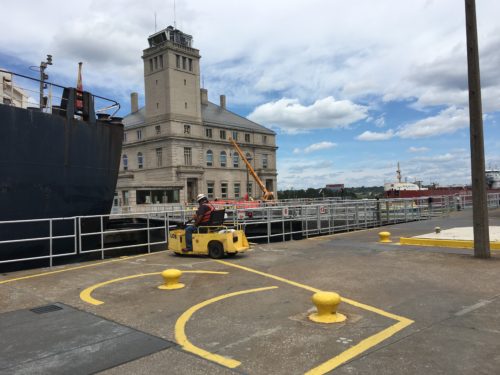
Making our way down to the park area.
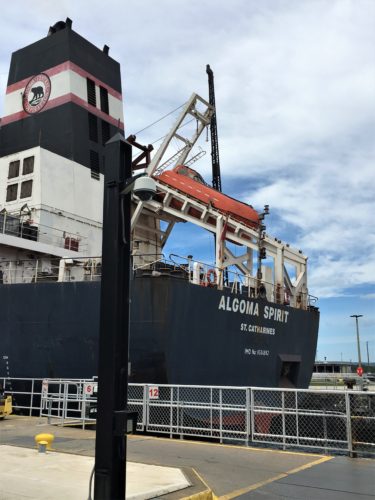
Jettison the life boat! : )
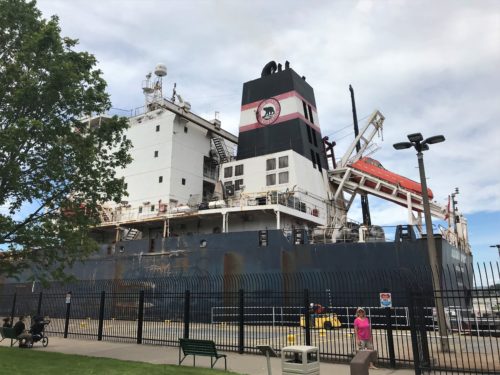
Here’s a perspective picture for you!
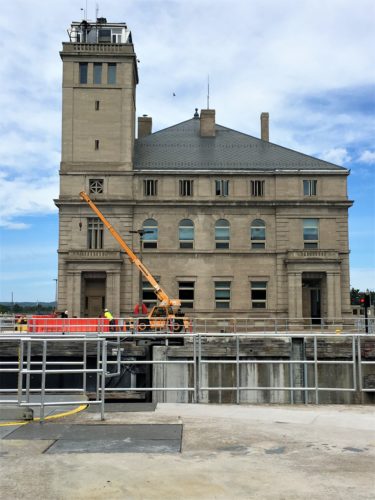
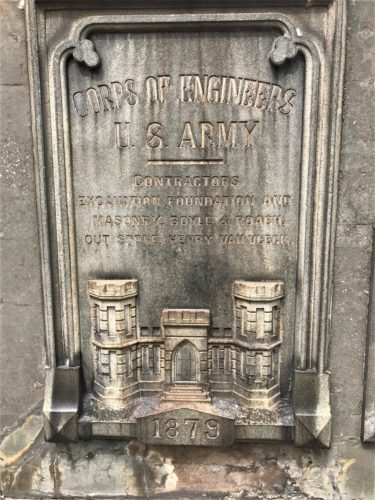
This was an interesting find
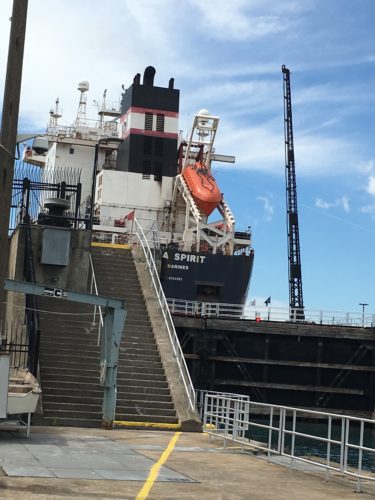
This shows the closed gate.
The Algoma has been raised, and is about to leave the lock , bound for Lake Superior.
Just as we were leaving, a boat tour was entering Lock #2 – – with yet another freighter, the Baie St Paul (just under 740’ x 78’) from Canada! Lucky people! Turns out the tour occasionally enters the lock with a shorter freighter when there’s room and they’re running in the same time frame.
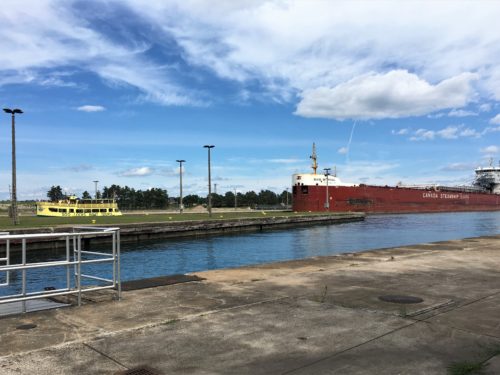
Back into the Visitor Center we went to finish up. We keep getting interrupted. : )
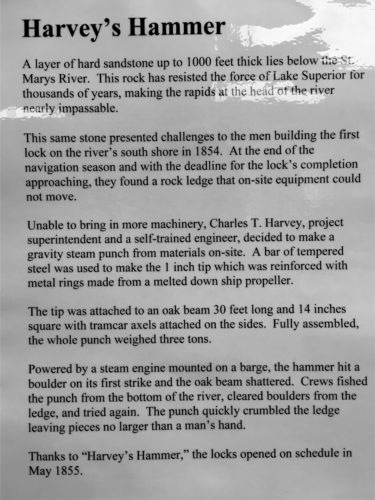
Interesting story!
The ingenuity of man!
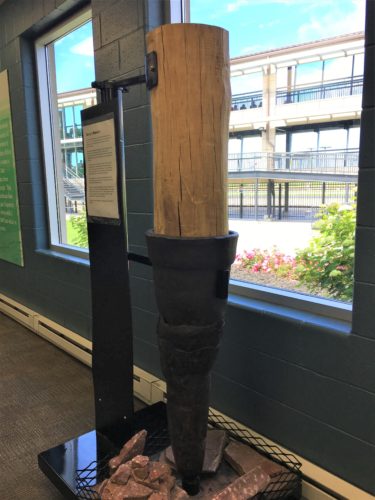
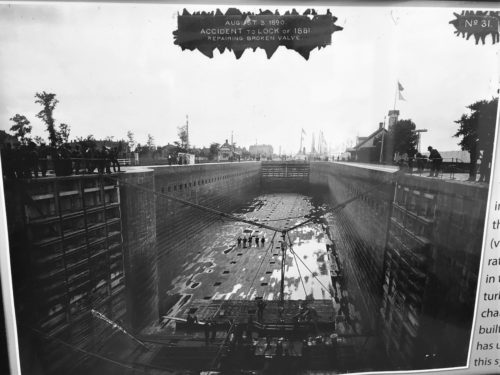
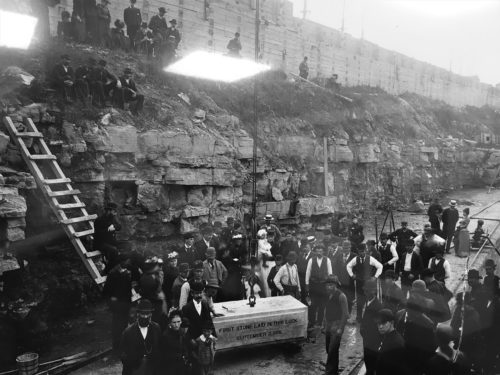
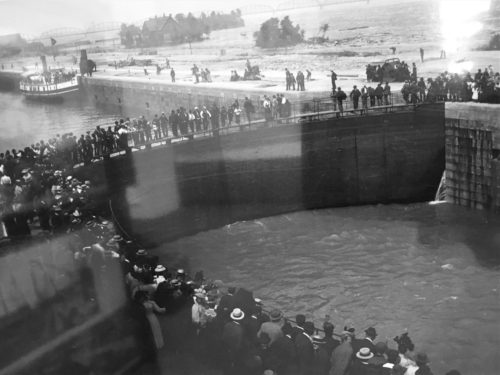
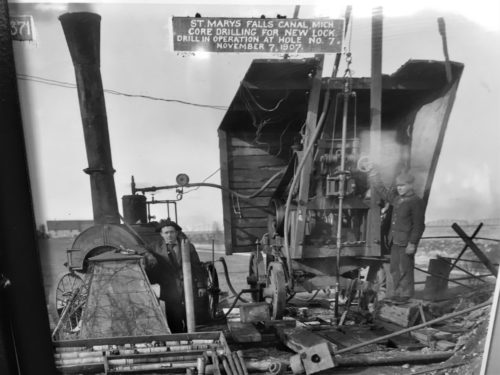
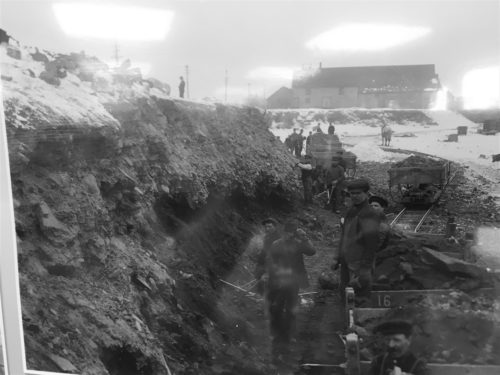
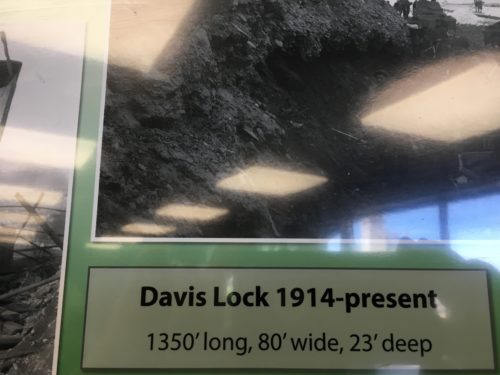
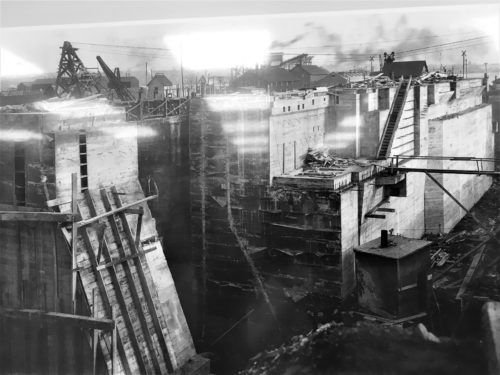
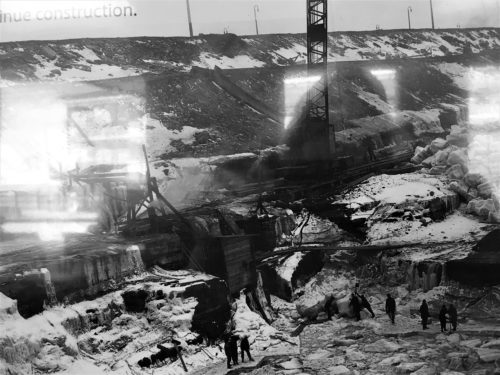
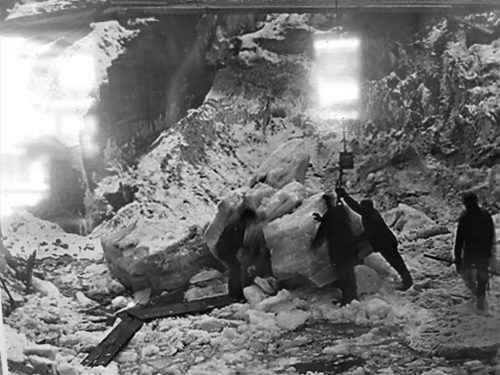
Then it was off to “The Tower of History”. Sounds really important or something, doesn’t it? Can’t you just hear James Earl Jones saying that in his oh-so-deep-and-authoritative-voice?
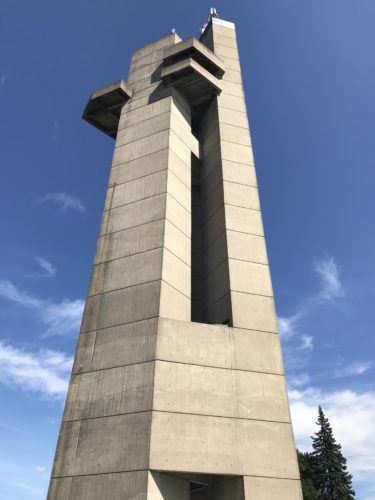
This. Is The Tower Of History.
Anyway, it was built by the Catholic church in 1968 and is 210’ tall and you can go almost to the top. It also includes a museum, but having been there, it’s the views that are the draw.

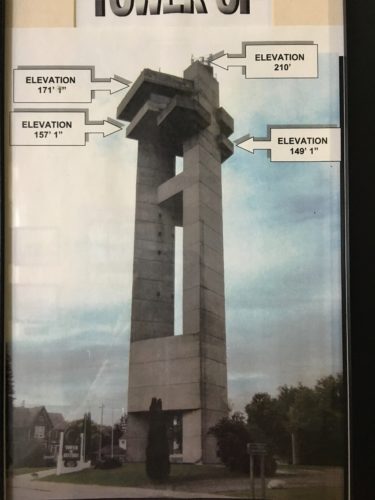
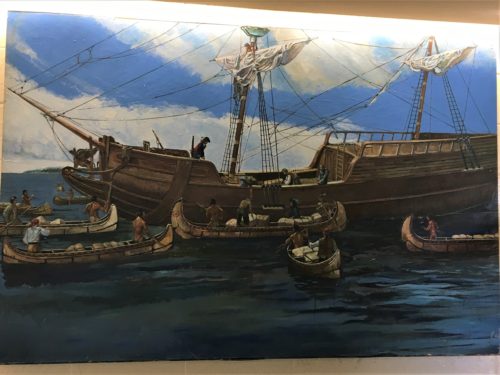
I kinda liked this painting, but there was no information with it. . .
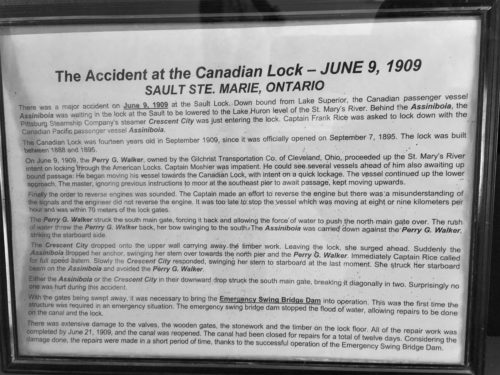
This happened on the Canadian Locks.
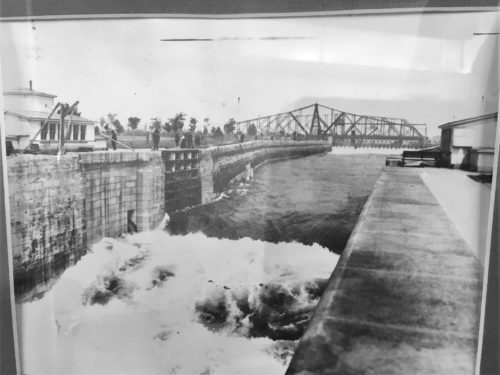
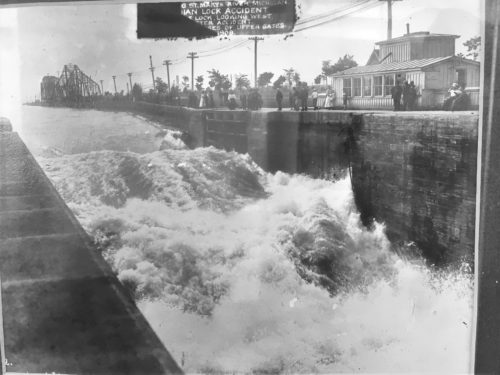
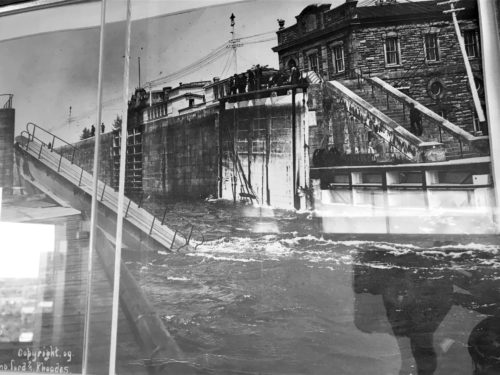
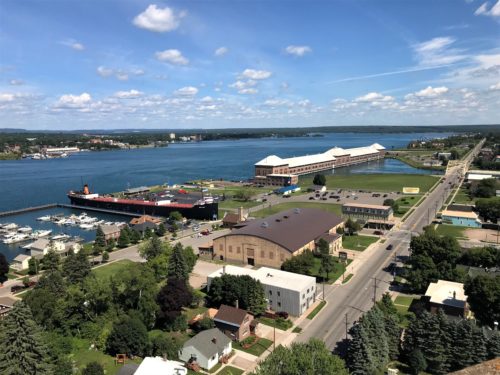
Down there is the Edison Power Plant and the ship museum, the Valley Camp, which we’ll probably be visiting later.
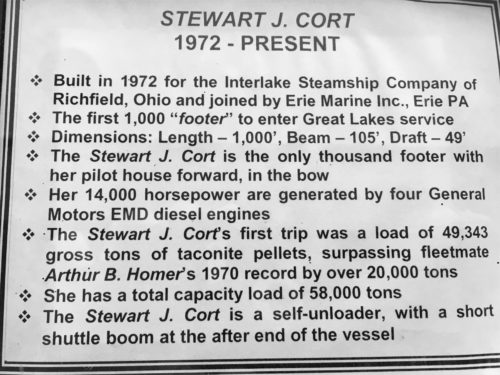
Here’s some more info on the Cort, just because it happened to be in the museum. : )
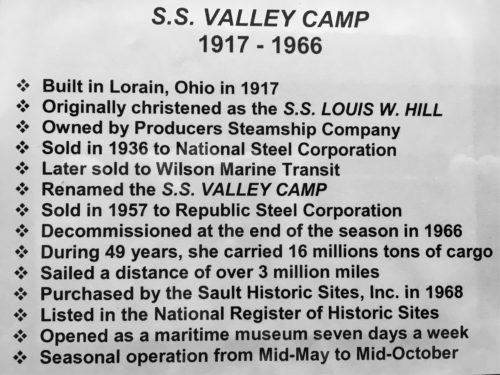


Needs some repair work . . .
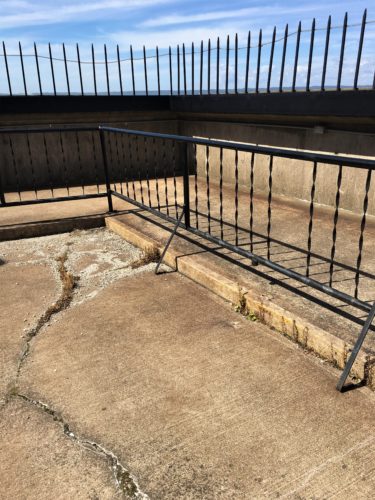
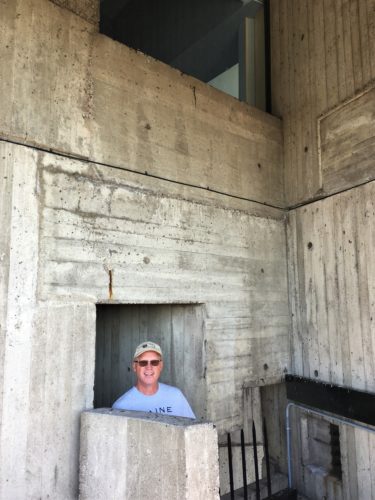
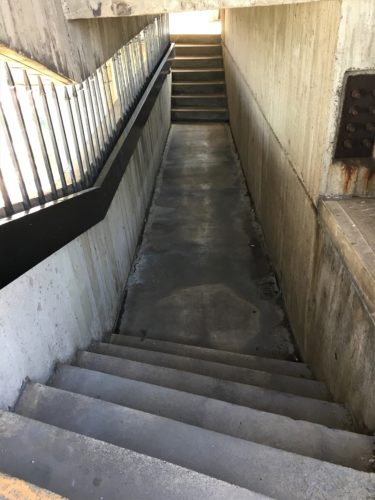

There goes another freighter into the locks!
Very busy day! Oh. And that plant in the background? That’s Ontario. You’re also looking at a Canadian train bridge (bottom) and the International Bridge (upper) that bridges Canada and the US.
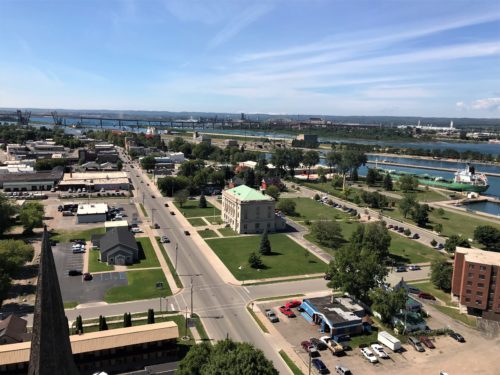

This green one came up the river, stopped here and docked.
Wonder what they’re doing?
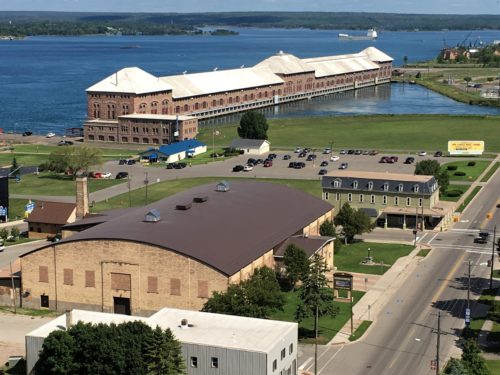
This is the Edison Sault Power Plant.
It’s huge and beautiful!

I liked the clouds. : )
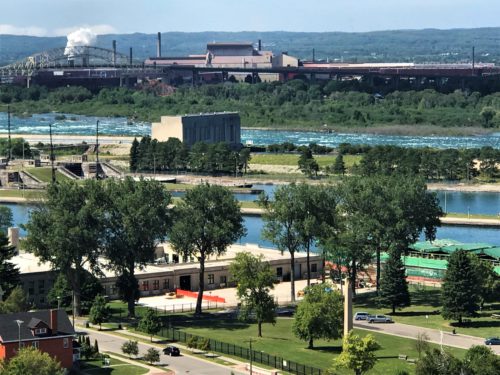
You can see what remains of the original rapids on the St Mary’s River.
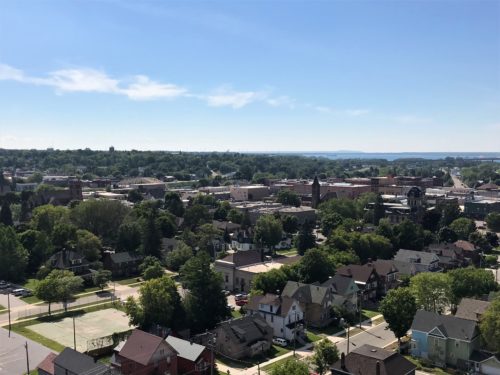
In this one, you can see the fancy courthouse we visited, as well as the Methodist Church.
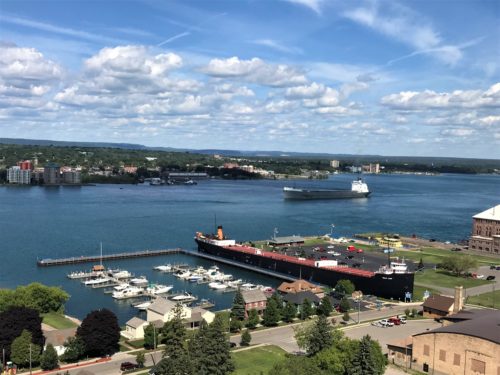
And . . . another one!
But you can also see three historic houses.
Starting on the right, is the red Baraga house, the beige Schoolcraft house and the white you can barely see for the trees, the Johnston house.
The information boards on these homes was so reflective, I’ll have to just tell you:
Bishop Frederick Baraga – referred to as “The Palace” and is his local residence. He’s the first Bishop of the Diocese of Marquette from 1853-1868. He was known as “the snowshoe priest” because of his numerous winter treks spanning the length and breath of the Great Lakes area to minister to the Ottawa and Chippewa Indians. We saw his picture-board in Wawa. Remember?
Henry Rowe Schoolcraft’s House – it’s a two-story home where Henry (who lived from March 28, 1793 – December 10, 1864) and his family lived. He was an American geographer, geologist, and ethnologist, as part of the Lewis Cass Expedition of 1820 In 1822, he was named the first U.S. Indian Agent for the area, and was noted for his early studies of Native American cultures. He married Jane Johnston, who was of Ojibwe and Scots-Irish descent. Her knowledge of the Ojibwe language and of Ojibwe legends, formed in part the source material for Longfellow’s epic poem, The Song of Hiawatha.
John Johnston’s House – Mr. Johnston (1762-1828) was a wealthy and successful British fur trader for the North West Company (remember them?). The family’s cedar log house on Water Street (where we are looking) was built in 1796 in a French colonial style. They had eight children; the eldest daughter, Jane married Henry Rowe Schoolcraft. During the War of 1812, Johnston’s longstanding British affiliations led him to assist the British. Consequently, his house was burnt down by the US Raiders. He later rebuilt on the same location. (Maybe that explains why the current house is so small! Surely, there weren’t 10 people living in something like this – especially since he was supposedly wealthy!)
Next door is St. Mary’s Pro-Cathedral. So . . . . . what is that? Is this only for professional Catholics? We had no idea what that meant.
A pro-cathedral is a parish church that is temporarily serving as the cathedral or co-cathedral of a diocese, or has the same function in a Catholic missionary jurisdiction that is not yet entitled to a proper cathedral, such as an apostolic prefecture or apostolic administration.
Yeah. That helped a whole lot. I guess you have to be Catholic to understand it . . .
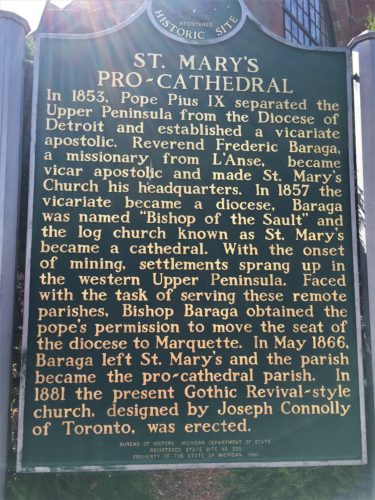
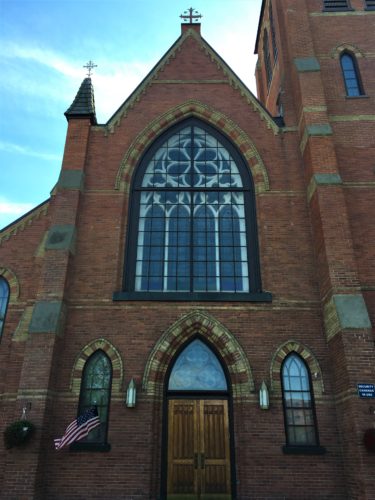
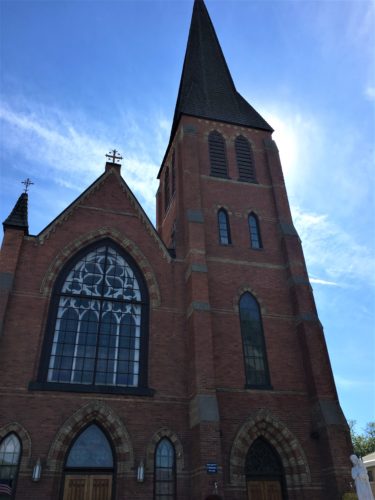
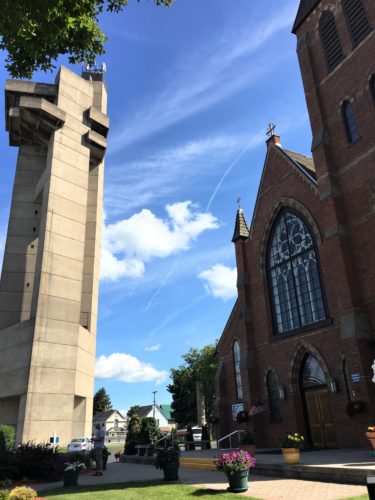
The church and tower.
You can see the tower from practically everywhere in this town. : )
This picture makes it look like both of the buildings are leaning. : )
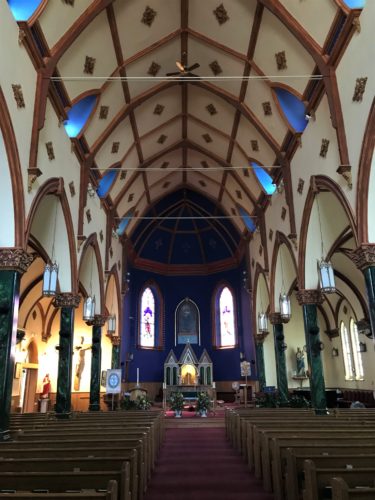
The door was open (as with most Catholic churches), so we stepped inside to take a peek.
We didn’t want the priest to come out, so we just took our pictures and left.
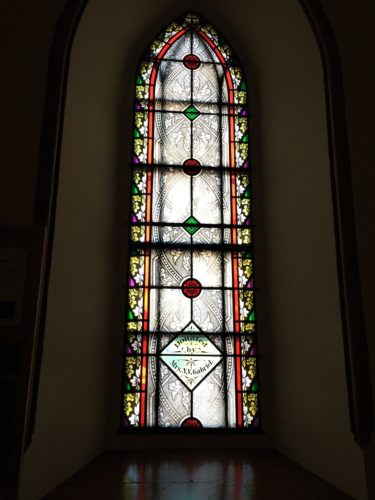
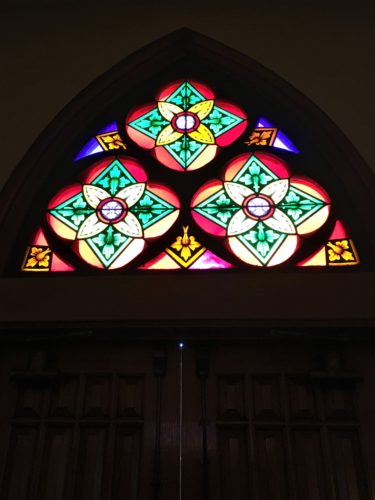
This was above the door.

Thus ended my day. Blaine went back out around 7pm and walked around. He brought back one picture.
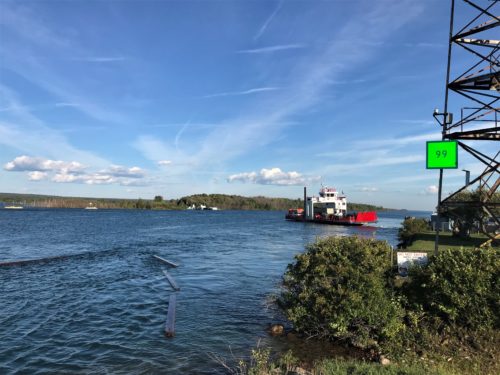
This ferry doesn’t go far, but it goes often and holds a lot.
